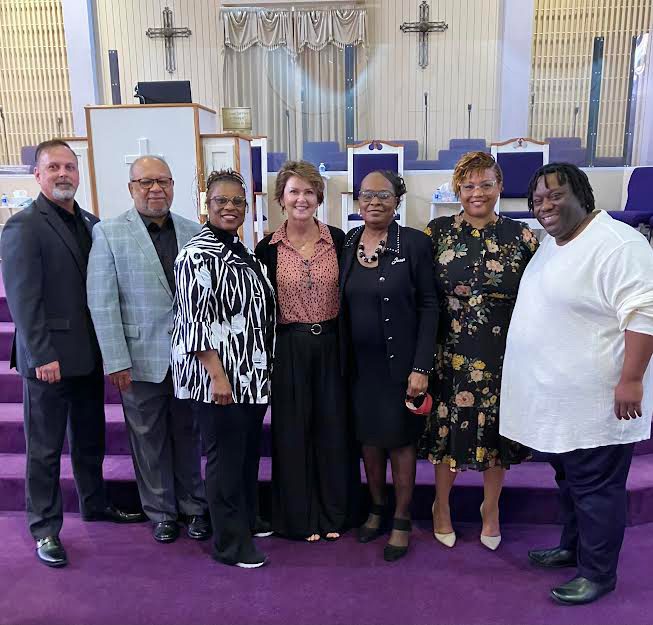A versatile mix of counselors, clergy, nonprofit leaders, and individuals who have suffered trauma and are living through various stages of recovery, found common ground at The Healing Center in Oakhaven Tuesday (March 28).
More than 200 people gathered at a workshop to learn how both communities and individuals are affected by trauma.
“This is absolutely awesome for everyone,” said host Pastor Dianne M. Young. “Not just in the African-American community, but people in every community suffer trauma. I was so proud to have so many communities represented in the workshop. It’s an acknowledgment that we are more alike than different, and we all need to heal from past trauma.”
Presenters explored simple strategies for managing “triggers” that cause victims to relive the devastation of a traumatic event.
“Our immediate reaction to trauma puts us in survival mode; freeze, fight, or flight,” said Assistant Director Jaime Harper, with the Tennessee Department of Mental Health and Substance Abuse Services.
Harper continued, “We generally do what we know, what we’ve been taught, taking cues from our environment, our faith, and our community. This workshop is just one example of how we try to create a safe environment for people to come and say, ‘I need help.’”
Harper’s division works with faith-based initiatives, such as those facilitated by The Healing Center to help a “community in crisis.”
“It has been more than four decades that my husband, Dr. William M. Young (who died in October), began working with the Black community concerning matters of mental health and trauma,” said Young. “We have come such a long way, and our message has always been the same.
“It is safe to talk about trauma and how we’ve been hurt. But also, the great cause for celebration is that Jesus, the Master Healer, can also heal emotions.”
The TAMAR Experience
Harper and other presenters were touting the efficacy of a premiere program design for addressing trauma and its effects.
TAMAR (Trauma, Addiction, Mental Health and Recovery) is a seven-week group treatment, which helps participants understand, not only how to recognize the influence of past trauma on present behavior, but how to identify the “triggers” which spark that behavior.
Triggers remind an individual of the trauma and invokes a response to the memory of a traumatic event, according to Charryse Wright, a trauma consultant.
“Anything can be a trigger,” said Wright. “I was traumatized by sexual abuse. So, when anyone says to me, ‘You know, Charryse, you are really beautiful,’ that triggers me because the past trauma is telling me they want something, which is unhealthy and like all other triggers, must be addressed.”
Wright said triggers can be a smell, a sound, seeing an object; anything with sensory perception that connects a person to the pain of past trauma.
Triggers influence present behavior, creating a pattern of unhealthy responses to stimuli. The goal of TAMAR is to teach trauma survivors how to cope in healthy, non-destructive ways.
TAMAR helps participants consider the cost of behaviors that result from negative triggers. They include drug use, cigarette smoking, fighting, overeating, drinking, and resorting to sexual encounters.
Countering triggers and helping individuals deal with past trauma and its effects entails gravitating to individuals with character qualities that help others feel safe, loved, and respected.
When negative behavior is being triggered, and a person is trying to break destructive behaviors that usually follow, simple everyday activities can make a world of difference — watching television, reading, taking a shower, exercise, meditation, stress-relieving breathing, and writing a letter.
(For assistance with emotional crisis and addiction referrals, call The Healing Center at: (901) 370-4673.)




